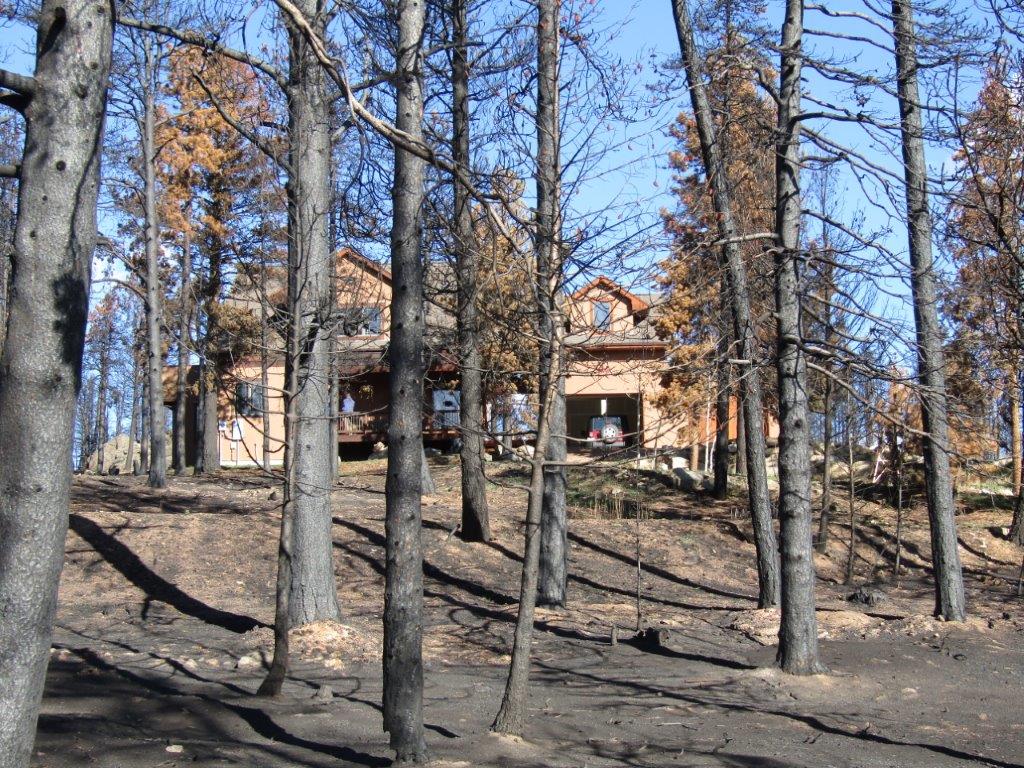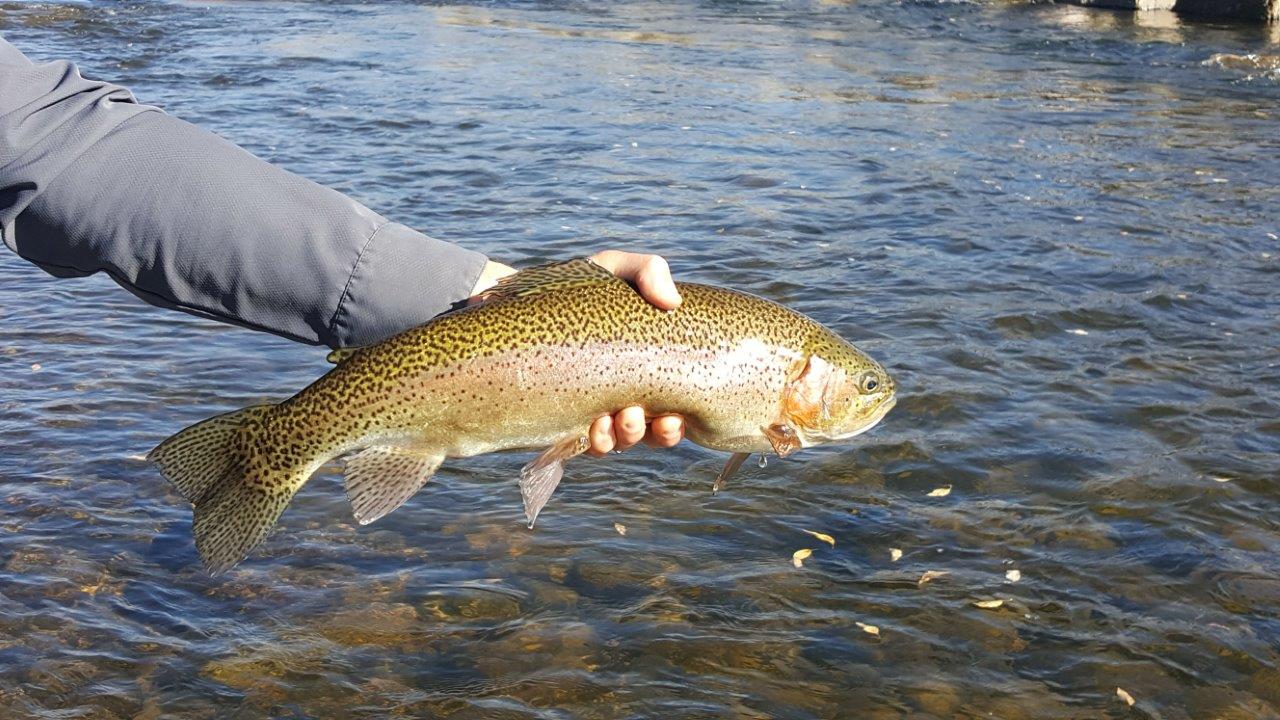
I took the pic above of a house after a small fire in CO. I’m amazed the house had made it. Unfortunately thousands of property owners in LA are not as lucky. The recent fires in LA are estimated to cost upwards of 50 billion making it one of the costliest fires in US history. The crazy part is who will actually absorb these losses, homeowners, private insurance companies, the state of California, or ultimately the US taxpayers? Did fish contribute to the disaster we saw unfold in California? Is climate change really to blame? What does this mean for insurance throughout the country? Where will these losses be hidden?
Before getting into the details on the insurance shell game going on throughout the country it is important to address two major issues that continue to come up on both sides of the political spectrum, fish, and climate change.
Did fish cause the disaster in LA?
First, why are we even talking about fish? President Donald Trump, said policies related to the endangered Delta smelt affect how much water can be pumped out of the fish’s habitat in the Sacramento-San Joaquin Delta. They added that’s the cause of water supply issues faced by firefighters laboring to stop the blazes. Three water tanks and some fire hydrants temporarily lost water because of high demand Tuesday, local officials said.
Although I am a big fan of fly fishing (below is a pic of yours truly), unfortunately this couldn’t be farther from the truth, fish have nothing to do with the fires or firefighting efforts. The loss of power was due to huge demand and the water system was unable to retain the pressure in the system due to wide scale power outages.
Is climate change the chief culprit behind the losses?
Unfortunately climate change is only one piece in the equation of the losses in LA. This is a stretch to say that the chief reason for the fires in LA is because of climate change. The real culprit is the continued building of high-density housing in high risk areas and furthermore not using best practices in building. For example, no wood siding allowed or any wood products on the exterior, no wood decks, no wood fences, required firebreaks, etc…
In addition as you get more people the chance of human caused catastrophes raises. Although we don’t know the root cause of the fires yet, there is no doubt that the LA fires were somehow related to human activity (arcing lines, an errant cigarette, arson, etc..??).
The crisis in LA has been further exacerbated as the government has taken on substantial risk from property owners thereby leading to increased building in high risk areas. More on this below.
The insurance shell game in California, Florida, and now Colorado
Private insurance companies have seen the writing on the wall for a long time in their risk modeling and decided to stop issuing policies in high risk areas. With the pullback in private insurance, California, Florida, and now Colorado have stepped in.
Homeowners in the most risky places are now more likely to be covered by state-created, “last resort” insurance programs that provide protection where the private market won’t.
Those plans have more than doubled their market share since 2018, and their liabilities crossed the $1 trillion threshold for the first time in 2022, according to Property Insurance Plans Service Office Inc., a research firm that tracks the programs. The most climate-vulnerable states are the most exposed: As of now, Florida’s plan could suffer $525 billion in losses; In California, it’s at least $290 billion, up sixfold from 2018.
Furthermore state plans are not required to match reserves with the risk they are taking on, like the private sector. State insurance companies are basically playing a shell game with risk and ultimately the music will stop.
Who is ultimately on the hook for these losses
But even as states have assumed more and more risk, they’ve largely dodged a fundamental question: How will they cover claims in the wake of a truly major catastrophe? There are limited options—levies on private insurers or state residents, or more state borrowing—and none of them are good.
States have turned these plans into “a magic hiding place to disappear risk that just gets too big for the private market,” said Nancy Watkins, a principal and consulting actuary based in Milliman’s San Francisco office. How many of the state plans are set up is that all other policy holders in the state will pay a special assessment in order to keep the state plan solvent. Unfortunately the losses are so big that the special assessments would overwhelm other homeowners in the state.
This begs the question of who ultimately pays. The risks are so large that state governments ultimately could need a bail out by the federal government to cover the claims of policy holders. Long and short somewhere down the line, the payouts from disasters like the LA fire will quickly overwhelm state insurance agencies and the results could be catastrophic for property owners.
State insurance of last resort creates a moral hazard dilemma.
Essentially these state plans have subsidized the riskiest properties to take on more risk as the state is ensuring that rates remain well below what the market should be charging. For example someone could build a house in LA and get coverage for 8k/year through the state insurance company. If this were a private company, the cost might be closer to 15-20k. The state is subsidizing property owners and basically moving the risk premium to the government and in turn other taxpayers.
If you don’t believe it is a problem look at this statistic regarding the California state insurance plan: “Though the plan doesn’t make its finances public, a state report estimates its holding roughly $100 million in reserves as of 2021—less than 1% of the insured losses from Camp Fire.” Fast forward and estimates are between 25-50 billion dollars in losses from the LA disaster. This will quickly overwhelm the state insurance agency as they have to pay out considerably more than they have in reserves.
Property insurance rates will surge throughout the entire country
The losses from the LA fires will be the largest wildfire losses in US history and these impacts will ripple throughout the country. Insurance companies are facing considerably more risk from fires, floods, hail, hurricanes, etc… and the only answer will be further increase prices to compensate for the risk. Insurance premium increases throughout the country will track well ahead of anything we have seen in history.
Will it be impossible to get private policies in certain areas
Yes we will absolutely see more property insurance companies pull out of markets. I think the LA fires are the tip of the iceberg and we will see more and more insurance companies pull out of markets as there is no realistic premium that homeowners could pay to mitigate the risk.
Eventually huge impacts to real estate prices
Real estate prices will eventually be impacted. We are already seeing this occur in some parts of FL. A number of homeowners in Florida have faced a precarious situation for securing insurance. Average homeowner premiums in Florida surged nearly 60% between 2019 and 2023. Some major insurance providers have reduced coverage. As insurance costs have risen so high, the resale market is feeling the impact of lower prices. This trend is only beginning after the tough hurricane season and now the fires out west. There is nowhere for premiums to go other than up.
Could the insurance crisis create a national housing crisis?
Unfortunately it is not out of the question that insurance could be the tipping point for real estate. Mortgage rates have soared at the same time insurance has almost doubled over the last 10 years in most places with huge increases still yet to come in many places.
State insurance companies are stepping in from CA, CO, and FL to try to mitigate the impact on homeowners who are unable to get insurance, unfortunately this is just a stop gap measure as risk is greatly outpacing the premiums collected which will ultimately lead to huge bail outs with every property owner in the state on the hook.
Summary
The LA fires are just the tip of the iceberg as the risk from catastrophes has far outpaced any funds collected to cover such risk. To be clear, the insurance crisis should not be blamed on fish or climate change but on human behavior. States and the federal government have created a moral hazard issue that has subsidized homeowners in high risk areas. Eventually the piper must be paid as we are seeing in the LA fires, the risk can no longer be hidden in the drawer. As we are seeing today, the risk could be insurmountable in certain areas and eventually every property owner will be on the hook due to the transfer of risk from high risk property owners to everyone else. The million dollar question is will this lead to a real estate price reset on a national level or just in the high risk areas as we are seeing now.
Additional Reading/Resources
- https://www.bloomberg.com/features/2024-home-insurance-real-estate-crisis/?srnd=homepage-americas
- https://coloradohardmoney.com/why-are-insurance-costs-increasing-in-colorado/
- https://coloradohardmoney.com/2-new-bills-signed-into-law-that-will-cause-colorado-property-insurance-to-skyrocket/
- https://www.latimes.com/business/story/2025-01-09/la-fires-property-home-insurance-crisis-fair-plan-lara-state-farm-allstate-palisades-eaton-altadena-wildfires
- https://www.wsj.com/opinion/california-fires-los-angeles-insurance-regulation-premiums-risk-fair-victoria-roach-gavin-newsom-1306d0a1?mod=mhp
- https://www.bloomberg.com/news/articles/2025-01-10/california-bans-insurance-cancellation-in-la-fire-affected-areas
We are a Private/ Hard Money Lender funding in cash!
If you were forwarded this message, please subscribe to our newsletter
Glen Weinberg personally writes these weekly real estate blogs based on his real estate experience as a lender and property owner. I’m not an armchair reporter/writer. We are an actual private lender, lending our own money. We service our own loans and own commercial and residential real estate throughout the country.
My day job is and continues to be private real estate lending/ hard money lending which enables me to have a unique perspective on the market. I don’t accept any paid sponsorships or ads on my blog to ensure accurate information. I’ve been writing this for almost 20 years and have over 30k subscribers. Please like and share my blogs on linkedin, twitter, facebook, and other social media and forward to your friends . I would greatly appreciate it.
Fairview is a hard money lender specializing in private money loans / non-bank real estate loans in Georgia, Colorado, and Florida. We are recognized in the industry as the leader in hard money lending/ Private Lending with no upfront fees or any other games. We fund our own loans and provide honest answers quickly. Learn more about Hard Money Lending through our free Hard Money Guide. To get started on a loan all we need is our simple one page application (no upfront fees or other games).
Written by Glen Weinberg, COO/ VP Fairview Commercial Lending. Glen has been published as an expert in hard money lending, real estate valuation, financing, and various other real estate topics in Bloomberg, Businessweek ,the Colorado Real Estate Journal, National Association of Realtors Magazine, The Real Deal real estate news, the CO Biz Magazine, The Denver Post, The Scotsman mortgage broker guide, Mortgage Professional America and various other national publications.
Tags: Hard Money Lender, Private lender, Denver hard money, Georgia hard money, Colorado hard money, Atlanta hard money, Florida hard money, Colorado private lender, Georgia private lender, Private real estate loans, Hard money loans, Private real estate mortgage, Hard money mortgage lender, residential hard money loans, commercial hard money loans, private mortgage lender, private real estate lender

